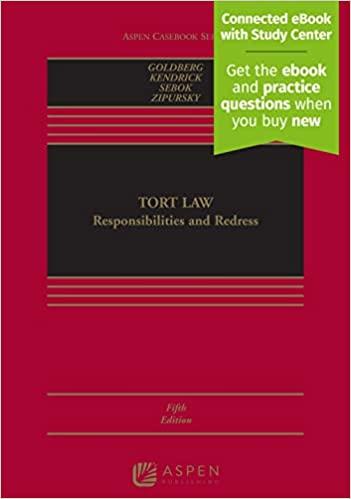Question
According to our competitiveness and consumer law assignment support specialists, competing laws refer to a group of laws that are looking to maintain market competition
According to our competitiveness and consumer law assignment support specialists, competing laws refer to a group of laws that are looking to maintain market competition by regulating anti-competitive conduct by business houses. They are also called anti-competitive and antitrust laws in some countries like the United States. While competing within countries is covered by national competing laws, international trade and commerce is usually settled with international trade agreements. By 1994, the General Agreement on Tariff and Trade (GATT) was settled with international trade. It was enacted to boost international competitiveness by reducing tariff and other trade barriers. In 1994, it was replaced by the World Trade Organization (WTO).
In practice,
competing laws deal with three areas, which are discussed in our competition
and consumer law assignment:
1 Please could you tell me the normal range of values for the liver function test serum alkaline phosphatase. The only mention of the parameters is that a reading of 1000 serious liver condition.
2 What is the best single test of liver function to exclude liver cell failure in the routine work-up of a patient with early dementia?
3 How valuable is the measurement of the liver span in a physical examination?
4 Why has the term 'chronic liver disease' replaced terms such as 'chronic hepatitis'? What exactly does this new term mean and what conditions does it cover?
5 Can jaundice occur early in schistosomal hepatic fibrosis and, if so, how?
6 My patient has been found to have a serum bilirubin of 34 mol/L (2 mg/dL) on three occasions. The other liver tests are normal. He tells me he has Gilbert's disease; how can I prove this?
7 Why is urinary urobilinogen increased in haemolytic jaundice? If the bilirubin in this condition is unconjugated, how does it reach the terminal ileum to be converted into urobilinogen?
8 How does cholestatic jaundice affect the kidney?
9 What is the mechanism by which cholestatic jaundice causes bradycardia?
10 Are 'jaundice' and 'icterus' one and the same? I was taught that icterus is yellowing of the sclera, while jaundice is yellowing of the skin and the mucous membranes. As a result, carotenaemia can produce jaundice but not icterus: is this so? I would be grateful if you would clarify this for me.
Step by Step Solution
There are 3 Steps involved in it
Step: 1

Get Instant Access to Expert-Tailored Solutions
See step-by-step solutions with expert insights and AI powered tools for academic success
Step: 2

Step: 3

Ace Your Homework with AI
Get the answers you need in no time with our AI-driven, step-by-step assistance
Get Started


